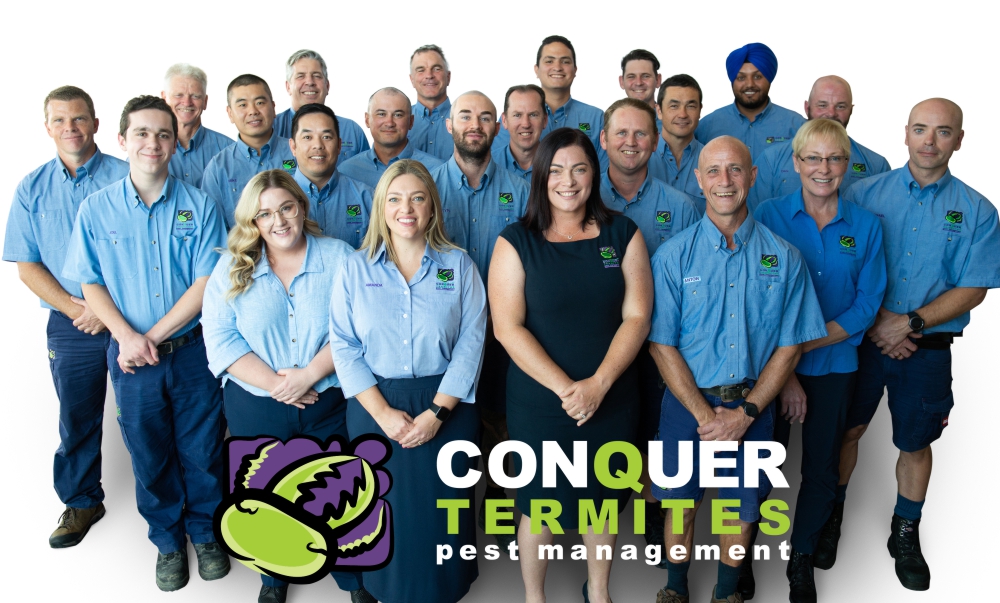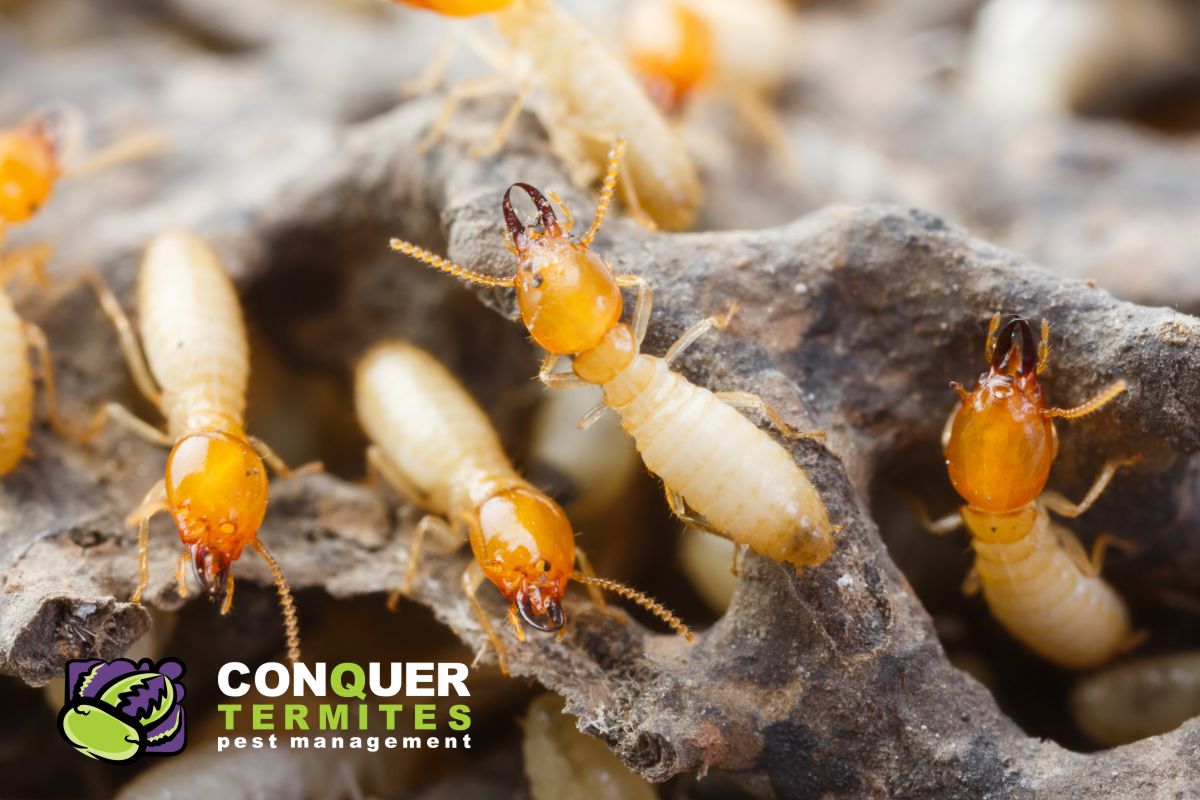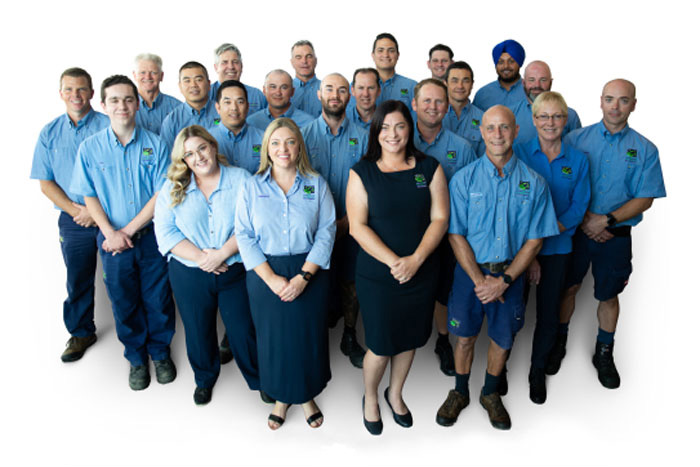We often see and hear many false theories about termites, usually backing a reason not to spend money. So, we thought it was time to address some of the most common termite myths. You may have heard and trusted a few of these yourself.
1. Termites, or as they are often referred to in Australia - “White Ants”, are a part of the ant family
This is, in fact, not true. The term ‘white ants’ is a misnomer. Many Homeowners get confused when identifying the difference between Black Ants and Termites. People mistakenly refer to termites as “White Ants”. It’s understandable; they sort of look the same. Have six legs and antennas and operate within a colony. But they are not the same insect. They are entirely different in body shape and behaviour. For more helpful information: WHAT DO TERMITE (WHITE ANTS) LOOK LIKE PAGE?
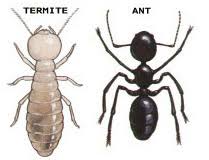
2. If I find termites in my garden, it’s best not to disturb them
This is one of the biggest myths we hear, and it is just not true. Suppose you allow conducive conditions to exist in your garden, like timber on the ground, old tree stumps and moisture. In that case, you are enabling termite colonies to build up their population to become a real threat to your home eventually. They only see and taste your fence as they forage closer to your house. So, get the live termites you find in your garden treated and don’t allow conducive conditions to encourage them.
3. A brick house on a concrete slab is safe from termites
Virtually all homes have a wood frame, so no matter how the wood is separated from the soil, termites can work their way to it from the ground underneath. Similarly, a concrete slab does not eliminate wood-to-ground contact. Termites can gain concealed entry through cracks in the concrete slab, pipes coming up through the slab and brick mortar gaps.
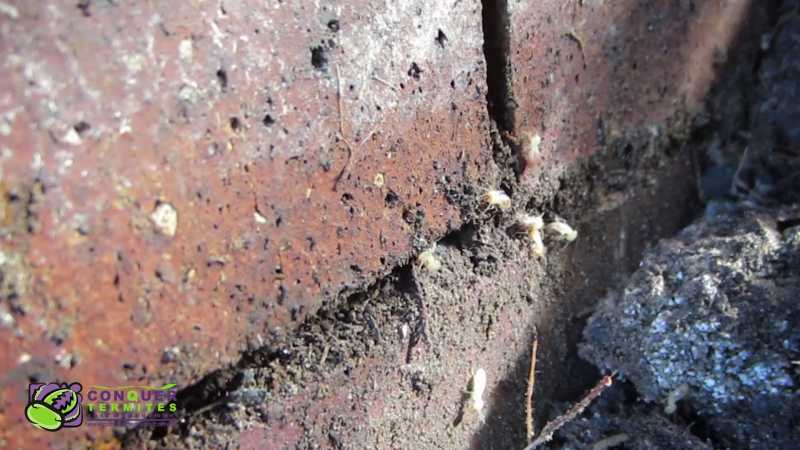
Having said that, though, we sometimes hear this one:
4. Termites can eat through concrete
This one is simply not true. What’s happening is that termites can access even the tiniest cracks in the concrete, and as more and more of them pass through it (remember, a colony can have hundreds of thousands of termites in it), the crack can become a little larger. Upon quick inspection, these original cracks are usually too small to be noticeable to us, so it’s easy to see why someone might believe this one.
Remember, termites can quickly build mud tunnels over concrete slab edges.
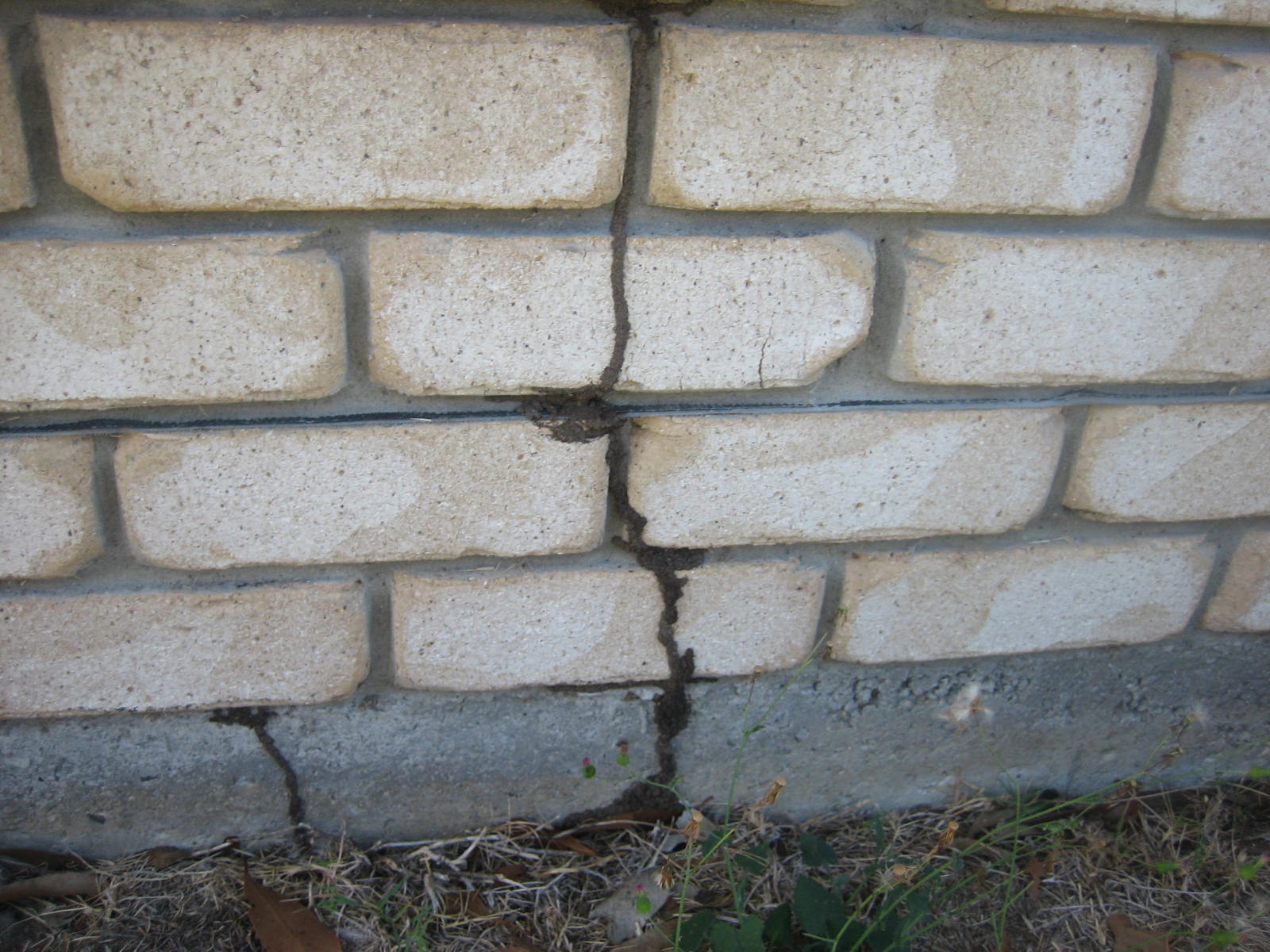
5. My house is built from Hardwood, so it is safe from termite attacks
The Termite’s natural food is the gum tree, which is hardwood. While there are a lot of hardwoods with natural resistance to termites, not all hardwood is resistant. Also, any resistance is usually found in old-growth timbers and may not apply to new-growth wood. True, termites will readily eat the soft pine trims first as they can process the sugars quickly, but they will have a balanced diet.
6. I have had a baiting system around my home; I now have a barrier that will keep termites out of my house
You can undoubtedly use Baiting systems certainly are an option you can use, and we install them ourselves. But in all honesty, they’re not our preferred method. If the termites find them and take the bait back to the colony, they can effectively wipe the colony out. But they’re not going to stop any termites found in your home. Again, while we do use them for customers who request them (and in some instances, they are sufficient), we believe that a complete chemical barrier treatment, such as the ones we install using Termidor when installed correctly, is the most efficient way of dealing with a termite problem.
7. My neighbour had termites, and you did a treatment; now I have termites! You pushed them over to our home!
Termite colonies can be huge, and more than a couple will be near your home! Several houses in a neighbourhood may share a termite colony, and treating one house among them, thereby making it off-limits to the termites, can make them more active in the other infested homes. But you can’t cause a termite infestation in one house by treating another. Termites feeding at House A and House B can be affected by bait brought into the colony from House A, and activity suddenly dies off at the second home. But termites will not cross a chemical barrier safely (a poison to them) and then set up a colony in your home. That chemical is still going to do its job and kill them.
8. Termites serve no useful purpose. They are nothing but destructive pests
The truth is termites are beneficial and necessary for our ecosystem. They provide a valuable service by breaking down dead wood in forests into the soil. Termites were one of the earth’s first recyclers. The only place you don’t want them is in your home.
9. “Twelve-monthly termite control treatments are necessary to protect my home against termites.”
That’s not true. Today’s chemical termiticides last between 5 and 10 years. You won’t need to re-do your chemical treatment unless there is a breach in the system (for a chemical barrier to be effective, there needs to be a complete line of chemical termiticide around your home. If you renovate, wash away the treatment (Don’t panic, though. Average heavy rain is not going to wash away your termiticide. For example, it would take the severe Brisbane flooding of January 2011 to be enough to do that kind of damage, if at all) or anything similar; you will need to get that new area treated to keep an unbroken barrier around the property). You will need a Termite Inspection every 12 months to ensure there have been no breaches in the protective barrier around your home.
10. All termite companies are the same, so you may as well go with the cheapest
Not true. Different companies use different chemicals and sometimes even different amounts of the same chemical. They may approach warranty situations differently, conduct check-ups differently, or be watering down their solution. Termiticides, whichever you use, must always be used to the manufacturer’s instructions.
Shop around. Ask for testimonials. The best way to find out about a termite company is to speak to customers and find out what they think of the service they’ve received. Or ask your friends who they have used and whether they have been satisfied with their service.
